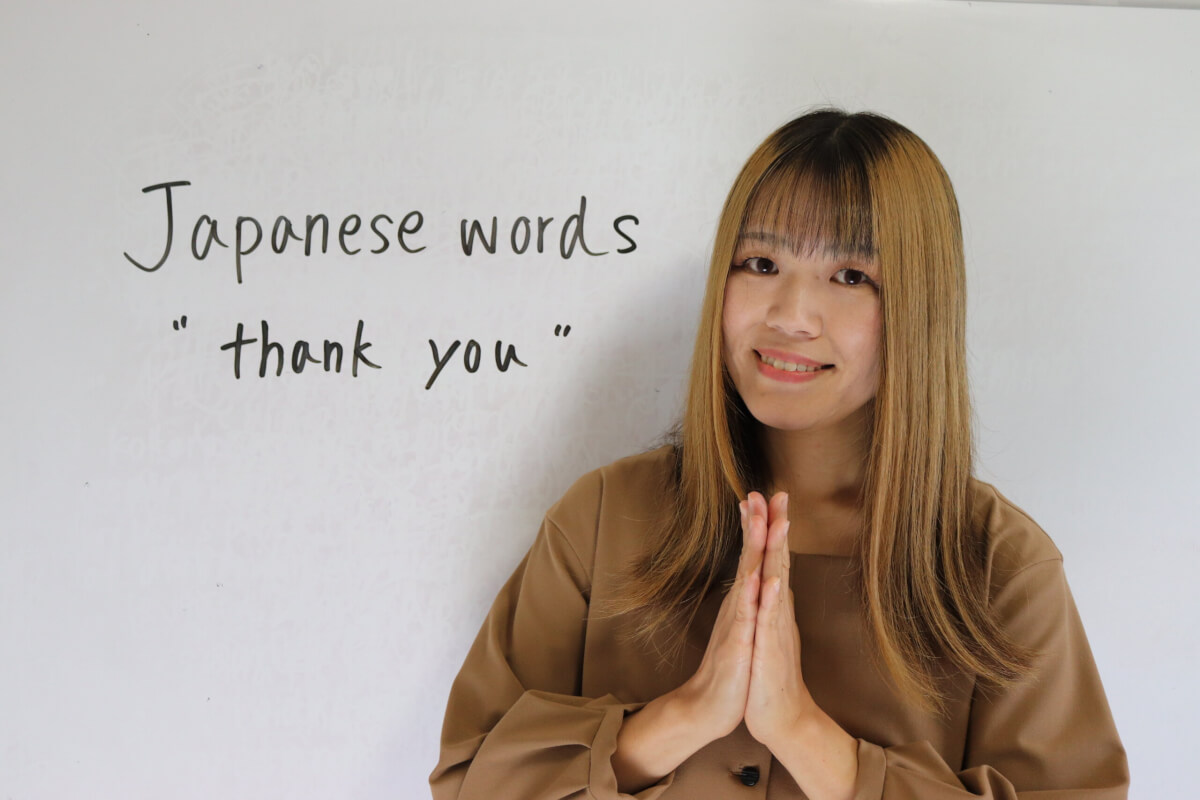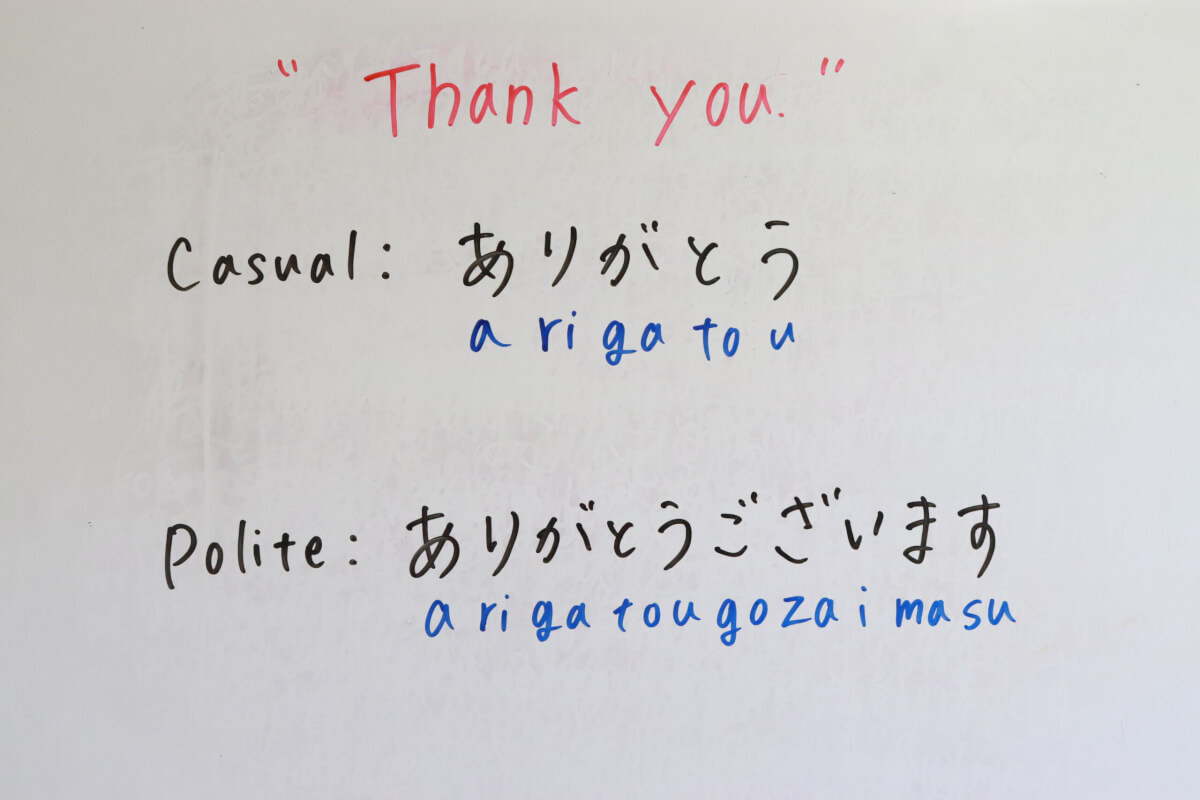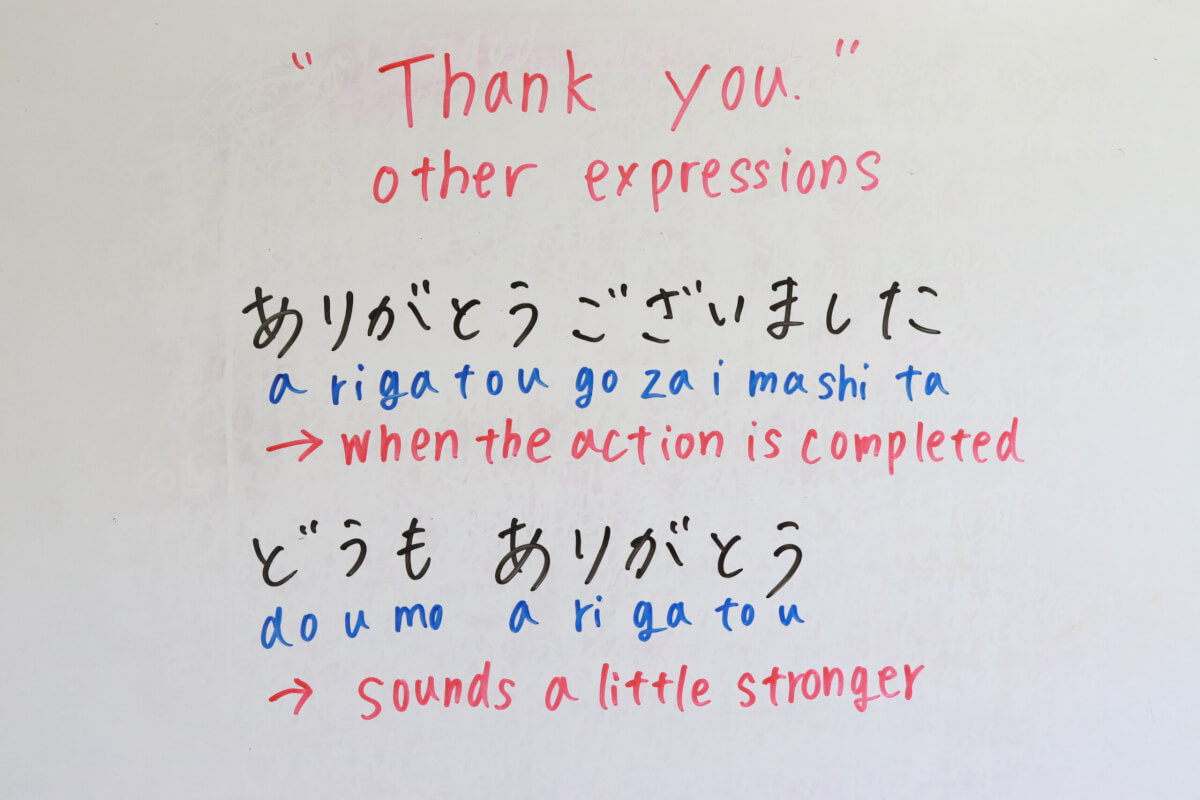- Release Date:
Japanese words thank you

"Thank you" is one of the most frequently used phrases in any language. In Japanese, there are many ways to express gratitude, each with its own nuances and specific situations where it’s best used.
This post will guide you through some common expressions of thank you, from casual to formal, and help you communicate appreciation more effectively in Japanese.
ありがとう /arigatou/

"ありがとう /arigatou/" is a casual, everyday way to say "thank you." It’s typically used with friends, family, or people you’re close to.
Example:
プレゼント、ありがとう!
/purezento arigatou/
Thank you for the present!
Saying this to your friend who gave you a present.
ありがとうございます /arigatou gozaimasu/
"ありがとうございます /arigatou gozaimasu/" is a more polite form of "thank you" that shows a higher level of respect. It's used for people in senior positions, new acquaintances, or formal situations.
Example:
おしえてくれて、ありがとうございます。
/oshiete kurete arigatou gozaimasu/
Thank you so much for teaching.
Used when you want to thank your teacher who taught you something.
ありがとうございました /arigatou gozaimashita/

ありがとうございました /arigatou gozaimashita/ is a past-tense form of "ありがとうございます which is often used when the action you’re thanking someone for has been completed. It shows both gratitude and respect. It's common in formal settings, such as after a meeting or a completed service.
Example:
ありがとうございました。
/arigatou gozaimashita/
Thank you so much.
Used when you leave the restaurant/shop.
There is quite a difference between "ありがとうございます" /arigatou gozaimasu/ and "ありがとうございました /arigatou gozaimashita/" for native speakers. The difference between them is mainly about tense and timing of gratitude:
- ありがとうございます: Present tense, used to express gratitude for something happening now or ongoing.
- ありがとうございました: Past tense, used for something already completed.
In short, use "ありがとうございます /arigatou gozaimasu/" for immediate thanks, and "ありがとうございました /arigatou gozaimashita/" when the action or the relationship is finished.
どうもありがとう /doumo arigatou/
Adding "どうも /doumo/" emphasizes the gratitude, making this a slightly stronger "thank you." It's still casual and works well in everyday settings.
Example:
たすけてくれて、どうもありがとう!
/tasukete kurete doumo arigatou/
Thank you so much for your help.
Thanking a coworker who helped you with a task.
心から感謝しています /kokoro kara kansha shiteimasu/
This expression conveys deep and heartfelt appreciation. It’s best suited for special occasions or to show sincere gratitude for meaningful help or support.
Example:
心から感謝しています。
/kokoro kara kansha shiteimasu/
I really appreciate it.
To your parents, you might say this when you graduate from school or get married.
すみません /sumimasen/
While “sumimasen” is often used to apologize, it also serves as a way to say “thank you” in Japanese, especially when someone has gone out of their way for you.
Personally, I often use "すみません、ありがとうございます /sumimasen arigatou gozaimasu/" when I am helped with something. It's kind of saying "thank you" in duplicate.
Example:
すみません!
/sumimasen/
Thank you!
Thanking someone who helps carry something heavy.
Expressing gratitude in Japanese can be done in many ways, depending on the situation and the relationship with the person you’re speaking to.
Even small gestures of appreciation can strengthen bonds and show respect. Next time you want to say "thank you," try using one of these phrases to add warmth and sincerity to your message!
